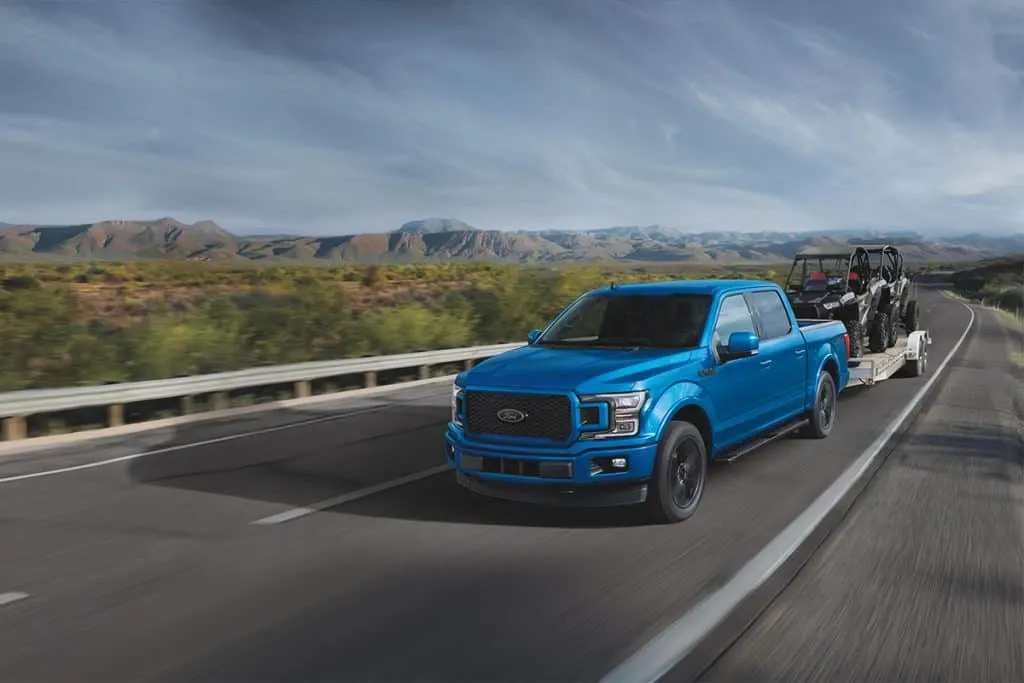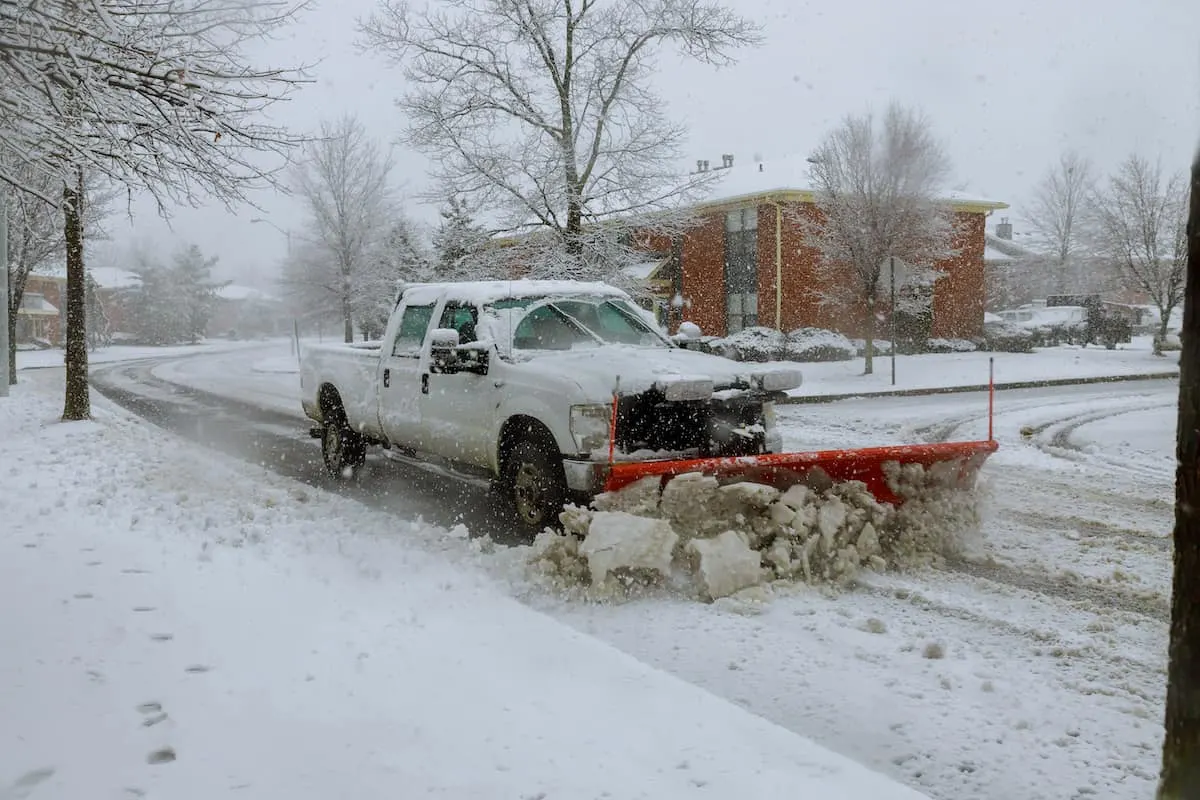Using a larger vehicle to drive in the snow might seem like a good idea to most people, but is it actually better than a car? We took a closer look and found out if trucks are better than cars in the snow.
Generally speaking, trucks outperform cars in snowy conditions because of their heavier weight, taller clearance, and larger tires. They are also more likely to come equipped with four-wheel drive for additional traction on slippery surfaces.
However, personal preference and comfort also play a large factor when it comes to poor road conditions that cannot be overlooked.
There is a lot of factors that affect why people feel more comfortable in different vehicles, so we will take a look at what affects people most and why they might like one vehicle over another. We will also show you how to pick the best snow vehicle for you.
Trucks Vs Cars in Snow
Personal preference plays a major role in what a driver feels better driving when the weather is snowy, but there are some big differences that help people make their decision of what to drive.
Whether you want to have more power and clearance in deep snow or want to be able to handle a smaller vehicle to have more control, you can decide what you think is the most important factor.
But what are the biggest differences between these two vehicles?

The case for trucks
Driving a truck in the snow is a good idea because of the height of the vehicle allows you to have better clearance over the snow.
This will allow you to drive over areas that have a higher level of snow on the ground without getting stuck in it or having the snow touch the undercarriage of the vehicle.
Snow can tend to cause a lower car to drag the snow underneath it as it goes because it is closer to the ground. This can slow your car down a bit and makes the engine have to work harder, but this is not an issue with a truck.
A truck will also have larger tires, at least most of the time, and they will be able to get through the snow easily. Snow tires are an important thing to have in the weather, but the larger the tires, the more they will be able to do.
So, having large snow tires on your truck will move more snow off the ground and away from your truck than smaller snow tires could. Since a car will have smaller tires, the amount of snow that they will get out of the way will be smaller as well.
This will cause your car to do more work to get through the snow than a truck would.

The case for cars
Though there are some benefits to driving a truck in the snow, that doesn’t mean that cars are not a viable option to drive. In fact, because of their lighter body and ability to handle tighter turns and smaller roads, they have many benefits as well.
Cars are smaller and lighter, which means that they have greater maneuverability.
This makes them a lot easier to get around tight corners and smaller spaces, which can be helpful in the snow when areas might be blocked off due to too much snow or you need to drive around other cars stuck in the road.
Trucks will be much more difficult to drive in these situations and won’t be able to make it passed other vehicles in the road as easily, so people who don’t drive trucks often might feel like they aren’t as in control. This could affect your driving and make it more dangerous to be on the road, not just for you, but also for others.
Larger trucks can make a bigger impact when in an accident or collision, and are more dangerous overall. So, driving one in the snow could increase the danger even more.
Personal Preference
There are reasons that some people like to drive certain vehicles and reasons why people don’t like others. This comes down to the feel of the vehicle as it is being driven.
Some drivers like to feel the aggressive engine working hard and makes them feel safer than if they were in a smaller vehicle. However, others might feel that they are up too high for comfort in a truck or that they are harder to maneuver.
This might make the driver a bit jumpy, which could lead to a higher chance of getting into an accident or making a mistake on the road that gets you stuck. Being comfortable in the vehicle you drive will make you safer.
So, if you have a truck and a car available to you, you should choose the vehicle that you are most comfortable driving.
Vehicle Capabilities
If you are wondering what each vehicle comes with in order to be able to handle snowy weather, you are not alone. Everyone wants to know which vehicle is better to drive in inclement weather because many trucks come with off-roading capabilities, which would seem to give it a major advantage over smaller cars.
However, this is not the advantage that you might think it is!
Off-roading is not the same as driving in snow, and the advantages that you get in rock terrain doesn’t always apply on snowy streets.
Cars come with a greater ability to navigate around corners and small spaces, which give them a great benefit on a snowy road. They also have better control when it comes to sudden movements and turns, which are not as safe when in a truck.
A truck is higher than a car, which has its benefits but also makes it more dangerous when making sudden turns. If they come around a tight turn at a high speed, the vehicle could end up rolling over.
This is a dangerous situation when there are ice and snow on the road making it more slippery than normal, which increases the chances of something like this occurring. A car will not have this problem to the same extent because they are lower to the road and can make turns much easier.
So, although a truck might sound like a better option because of the off-roading capabilities that they may come with, it doesn’t mean that a car is not a good option or that a truck doesn’t have some caveats.
How to Choose the Best Vehicle for You
Getting behind the wheel can be a small thing for someone who drives so often, but when the weather is snowy and the roads are slippery and more dangerous, you want to make the choice to use a vehicle more seriously.
You don’t want to get behind the wheel of a vehicle that you don’t feel comfortable in if you can help it. So, you want to decide what your best choice will be out of the options available to you.
You wouldn’t want to try to drive a large truck for the first time when you have never done it before because you want to be used to the option that you choose.
If you normally drive a car, not a truck, then you will want to continue to use that same vehicle that you are the most used to.
However, you will want to ensure that the vehicle is equipped with the things they need to be safe on the road. So, first, you will want to get snow tires for the winter month.
No matter what kind of vehicle you drive, you will want to ensure that there are snow tires on it. This will allow it to have better traction on the road and will lessen the chance of an accident due to having the wrong tires for the weather conditions.
Next, you will want to ensure that you get gas more often to ensure that you don’t run out while on the road. You use more gas in the winter months, and a small amount of gas that would usually get you far will not allow for the same distance.
Then, you will want to drive slower to prepare for sudden movements from other vehicles and allow for a longer braking time. You will need more time to brake when it is snowing, so ensure that you follow less closely.
Finally, you want to get a tune-up on anything that your car needs before the snow season starts. This will ensure that your car is up to par for the harsh weather.
Conclusion on trucks vs cars in the snow
Getting behind the wheel of a car or truck can be nerve-wracking when there is lots of snow on the ground, but that doesn’t mean you won’t be safe.
A truck may not necessarily be a better option than a car, and a car doesn’t have all the advantages of driving a truck in the snow, but both can be used in snowy weather.
Just decide which one you feel more comfortable in, and get your vehicle prepared for the cold weather, and you will be able to drive with confidence in any weather conditions.
Recommended Reading
Before you go, make sure to also check out these other awesome resources!
